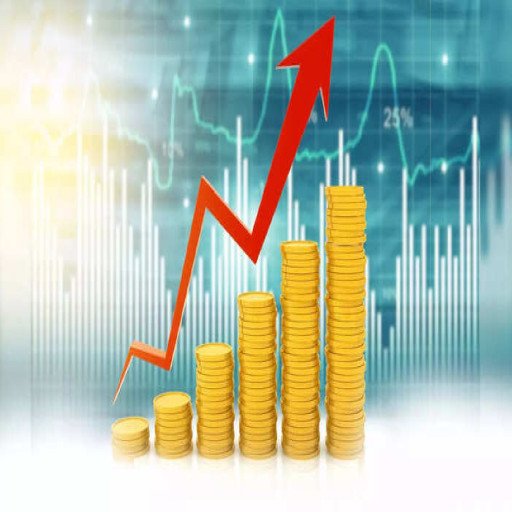
The year 2025 presents new
opportunities. With the economy expanding, financial reforms underway, and a
growing middle class eager to secure the future, Bangladesh is moving toward a
culture of smarter savings and diversified investments. Many people are
beginning to realize that money should not simply sit idle in bank accounts or
cash reserves. Instead, it must grow to keep pace with rising living costs and
inflation.
This raises an important question:
where should one invest? Choosing the right place for your hard-earned savings
can determine whether your wealth multiplies or slowly loses value. The good
news is that several promising avenues are now available. In this article, we
will explore the 5 best investment options Bangladesh offers in 2025,
why they matter, and how they can help you build financial security.

Before looking at opportunities, it
is important to understand why many people hesitate to invest.
But doing nothing has its own cost.
Inflation gradually eats away at savings every year. That is why knowing the investment
options BD provides is vital for anyone who wants long-term stability.
The safest starting point for most
individuals remains National Savings Certificates (NSCs) and other state-backed
products.
Why they matter:
Example: If a family invests BDT 5
lakh in NSCs, they can rely on a fixed stream of income each year. For
households that need stability, this continues to be one of the best
investment options Bangladesh provides.
Investors looking for stronger
returns often turn to the Dhaka Stock Exchange (DSE) and the Chittagong Stock
Exchange (CSE), where companies in banking, telecom, and pharmaceuticals show
promising growth.
Why they matter:
Example: In 2024, investors who
purchased shares in energy and banking firms earned double-digit gains. For
2025, analysts expect consistent sectors like textiles and healthcare to remain
among the more rewarding investment options BD.
Real estate still holds its position
as one of the most reliable ways to preserve and grow wealth in Bangladesh.
Urban development in Dhaka, Chattogram, and emerging towns has increased demand
for apartments, shops, and land.
Why it matters:
Example: A family that bought land
near the Dhaka metro project several years ago has now seen its value rise
sharply as infrastructure improved. Real estate is still one of the best
investment options Bangladesh has for people who plan long term.
For conservative savers, fixed
deposits (FDs) and corporate bonds remain safe and predictable.
Why they matter:
Example: A young graduate saving for
postgraduate studies abroad may place BDT 3 lakh in a three-year fixed deposit.
The returns from the fixed deposit gradually add to the savings pool, making it
easier to cover future tuition expenses. Bonds also add another low-risk option
in 2025.
Mutual funds combine the money of
many investors to buy diversified assets, while Exchange-Traded Funds (ETFs)
track indexes. These are gaining popularity in Bangladesh because they allow
small investors to access professional fund management.
Why they matter:
Example: A schoolteacher in Rajshahi
who invests BDT 50,000 in a mutual fund automatically gains exposure to dozens
of stocks. This hands-off approach is emerging as one of the more practical investment
options BD in 2025.
Each of the 5 best investment
options Bangladesh provides carries its own balance of safety, return, and
risk.
The right decision depends on your
goals, your age, and how much risk you can take. A young professional may focus
on growth-oriented investments, while someone nearing retirement might prefer
security.
Bangladesh’s financial environment
is evolving rapidly. From traditional government savings to modern mutual
funds, the variety of investment options BD now available is wider than
ever. Today the question is not about the availability of investments, but
about making the right choice from the growing number of opportunities.
Whether you are preparing for
retirement, saving for education, or planning to grow wealth, the best
investment options Bangladesh has in 2025 can guide your journey. The
sooner you act, the stronger your financial foundation will become.
1. What
are the safest investment options BD provides in 2025?
Government
savings schemes like National Savings Certificates (NSCs) and bank fixed
deposits remain the safest because they guarantee returns and carry minimal
risk.
2. Which
is the most profitable investment option in Bangladesh right now?
Stocks and real
estate usually offer the highest growth potential, but they also come with
higher risk. Mutual funds are a balanced choice for those who want growth with
managed risk.
3. Can
small investors start with limited money?
Yes. Mutual
funds and Exchange-Traded Funds (ETFs) allow investors to begin with as little
as BDT 5,000 to BDT 50,000, making them suitable for beginners.
4. How
does inflation affect investment options BD offers?
If you keep
money only in savings accounts, inflation reduces its value over time.
Investments such as stocks, real estate, and bonds help your wealth grow faster
than inflation.
5. Is
real estate still one of the best investment options Bangladesh offers in 2025?
Yes. With metro
rail projects, highways, and urban expansion, property values in certain areas
are rising. Real estate remains a reliable long-term investment.
6. Are
corporate bonds safe for investors?
Corporate bonds
are relatively safe if issued by reputable companies. They provide steady
interest but may carry slightly more risk than government savings products.
7. Which
investment is best for retirement planning?
A mix of
government savings, fixed deposits, and mutual funds is ideal. These ensure
steady income while also growing wealth moderately over time.
8. Can
foreigners invest in Bangladesh?
Yes. Foreign
investors can participate in stocks, bonds, and even real estate, though some
regulations apply. They usually need approval from Bangladesh Bank or the
relevant authority.
Comments (0)
Leave a Comment
No comments yet
Be the first to share your thoughts!